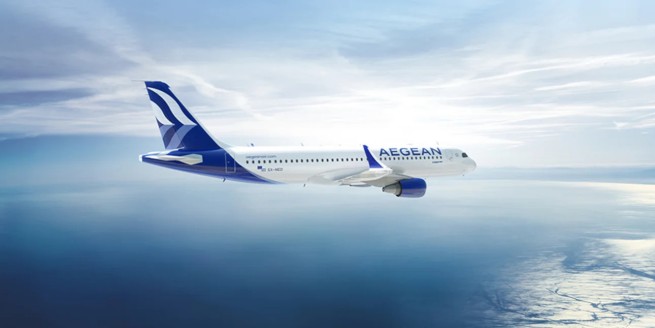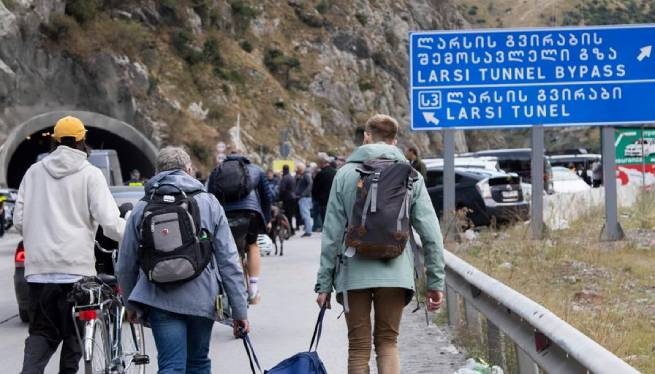Recent decrees by Vladimir Putin on the restoration of direct flights and the abolition of visas in Georgia were perceived ambiguously. Some called the Russian president’s decision a provocation, while others took it as a “reward.”
Moscow lifted the ban on direct flights to Georgia and introduced a visa-free regime for its citizens. How did Tbilisi react, and what do experts say? tells D.W.
The decrees signed by Vladimir Putin come into force on May 15: one on the abolition of visas for Georgian citizens (with the exception of those going to work), the second on the restoration of direct flights with the country. The news caused a mixed reaction: the ruling Georgian Dream party and the Ministry of Foreign Affairs of Georgia supported this decision, President Salome Zurabishvili called the decree a “provocation”, and the Georgian opposition perceived it as a “reward” for the restrained position of the authorities on Ukraine.
A bit of history
Since 2000, a visa regime has been in effect for Georgian citizens to prevent Chechen fighters from entering Russia from Georgian territory. Then Georgia introduced a visa regime for citizens of the Russian Federation (since 2004, it has operated according to a simplified scheme). After 20% of Georgia’s territory was occupied in 2008, diplomatic relations between Moscow and Tbilisi were severed, and Georgia abolished the simplified visa regime for Russian citizens.
In 2012, former Georgian President Mikheil Saakashvili returned the visa-free regime for Russians unilaterally, calling his decision “a sign of strength.” Moscow introduced a ban on direct flights between countries in 2019, after the so-called “Gavrilov’s night”. Then the “Georgian Dream” invited a deputy of the State Duma of the Russian Federation from the Communist Party to speak in the Georgian parliament. In response, mass anti-Kremlin protests broke out in Georgia, the Russian Foreign Ministry called them a “Russophobic provocation.”
What is evidence of the abolition of the visa regime by Russia
Russian presidential spokesman Dmitry Peskov, commenting on Putin’s decrees, called them a “humanitarian” decision. Leonid Kalashnikov, chairman of the State Duma Committee on CIS Affairs, urged not to take the president’s decision as a sign of reconciliation between Moscow and Tbilisi. He explained this step with concern for the fate of Russian citizens:
“Russia canceled visas for citizens of Georgia and lifted the ban on air travel not to make peace or not to make peace, or, moreover, somehow surrender the positions of Abkhazia or South Ossetia. This was done to make life easier for their own people.”
But many experts believe that this is also a strategic step, driven by Russia’s national interests. For example, Paata Zakareishvili, a political analyst and former minister for reintegration of Georgia, explains that the Kremlin decided to publicly record its dominance over Georgia and send this signal EU: “Russia wants to get ahead of events, get ahead of Europe, prevent Georgia from becoming a member of the EU.”
Reaction in Tbilisi
The news about the resumption of flights did not come as a surprise, Moscow and Tbilisi exchanged diplomatic curtsies even before the signing of the decrees. Critics of the government argue that the resumption of flights is unacceptable against the backdrop of the war in Ukraine and accuse the authorities of “collaboration with Russia in the aviation sector.”
The ruling party has a different opinion. The authorities explain direct flights as a necessity for Georgian citizens living in Russia:
“You all know, and it’s a fact that one million ethnic Georgians, our compatriots, are in Russia, they have relatives, family members and relatives here, and, of course, it is very important to simplify their movement.”
In fact, analysts believe that the correctness of this figure is in doubt – it can be greatly overestimated. However, it is difficult to answer how many Georgians actually live in the Russian Federation. According to the 2020 census, there are 113,687 ethnic Georgians in Russia.
Despite the fact that Georgia voted for international sanctions against Russia, the government refrained from imposing its own sanctions. The Georgian opposition accuses the authorities of a pro-Russian course, as well as of worsening relations with Kiev against the backdrop of “anti-Ukrainian and Western propaganda.” The leader of the largest opposition party, the National Movement, Levan Khabeishvili, wrote on the social network: “Putin actually declared Georgia a Russian province. Putin thanked Russian Dream, Bidzina Ivanishvili for their help.”
Billionaire Bidzina Ivanishvili is considered by many critics to be Georgia’s shadow leader and the conductor of the Kremlin’s interests in the country. Khukhashvili, a former adviser to Prime Minister Ivanishvili, says:
“Purely formally, this is, of course, a unilateral decision. But it is also a consequence of the policy pursued by the Georgian Dream in recent years. There is an economic, migration, propaganda expansion. The most skeptical moods are being created towards the West, the authorities are demonstrating hidden loyalty to the Kremlin. Therefore Moscow considers it possible to reach a new level, accelerate and force rapprochement.”
Are sanctions possible, and what will happen to Georgia’s EU membership?
The Ministry of Transport said that after the restrictions were lifted, Russian airlines would fly domestic aircraft from Moscow to Tbilisi and back seven times a week. However, the launch of flights can take from several weeks to several months. And the United States has already warned Georgia about possible sanctions. Vedant Patel, US State Department spokesman, said:
“If direct flights between Russia and Georgia are restored, companies at Georgian airports will be at risk of sanctions if they serve aircraft subject to export-import control.”
According to aviation expert Yasya Zautashvili, Georgian Airways runs the risk of being sanctioned if it starts flying to Russia. According to her, the Georgian company rented most of the planes, so it is forbidden to fly to the sub-sanctioned country.
In addition to fears of sanctions, experts also point out that rapprochement with Moscow may alienate Georgia from Brussels and the long-awaited status of an EU candidate. As Zakareishvili believes, when making a decision, Brussels will face a dilemma:
“On the one hand, there are fears and risks that Russia will be able to get another channel of influence through Georgia if it becomes a member of the EU in the future. But on the other hand, by granting candidate status, Brussels will strengthen the pro-democracy forces in Georgia and allow civil society to continue the struggle against pro-Russian forces.
And here is how ordinary citizens of Georgia perceived the news:







More Stories
The Minister of Health called the protesters "insignificant people, kafirs"
Gold Switzerland: “We are in the last 5 minutes of our financial system – the collapse of everything is approaching”
Union of Judges: “People’s courts were created against us with the loyal attitude of the government”